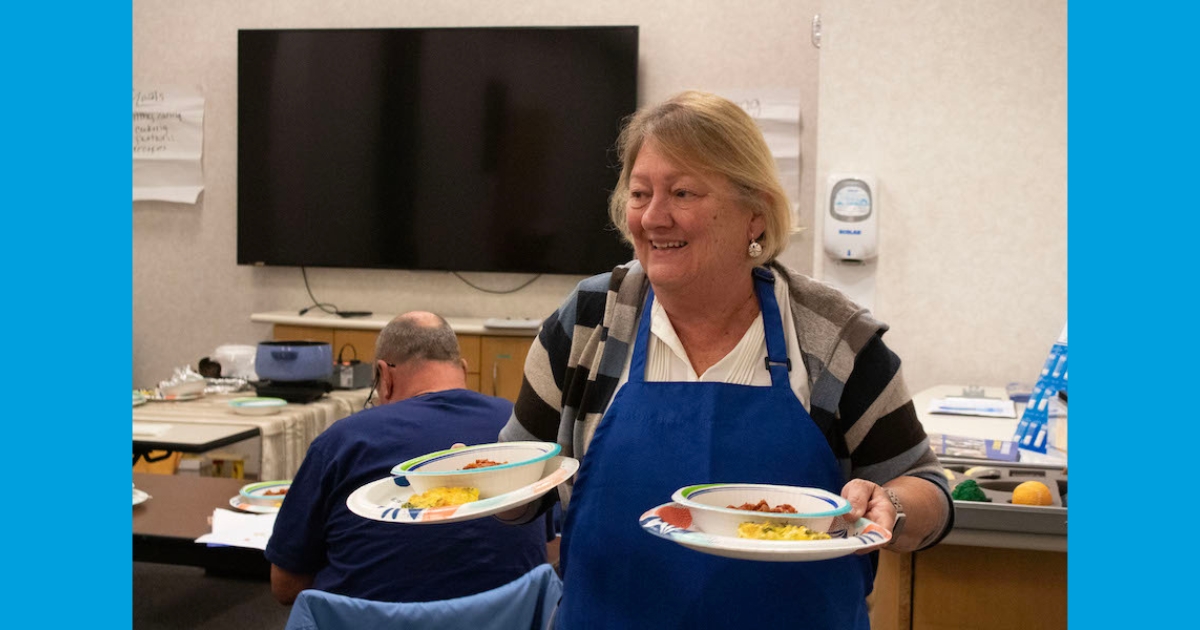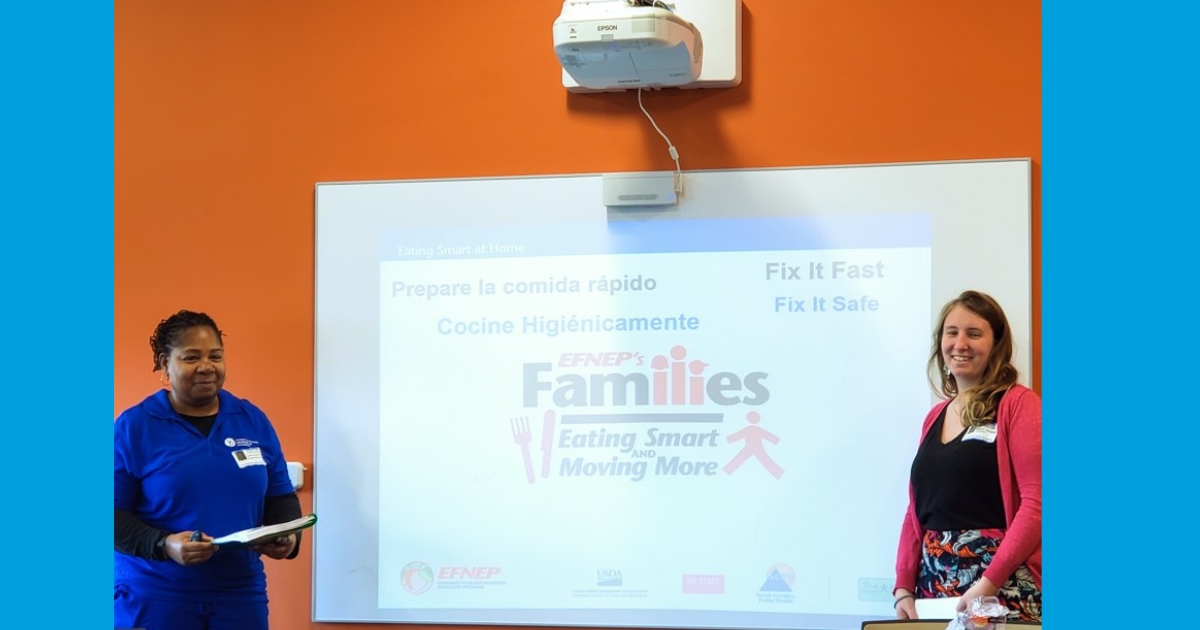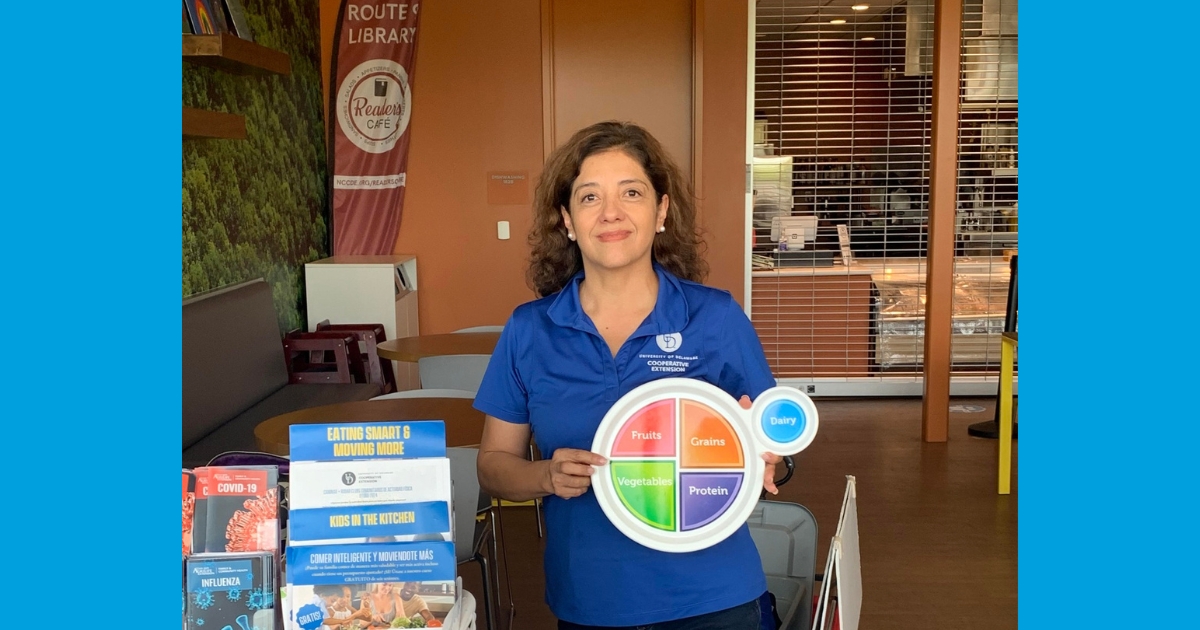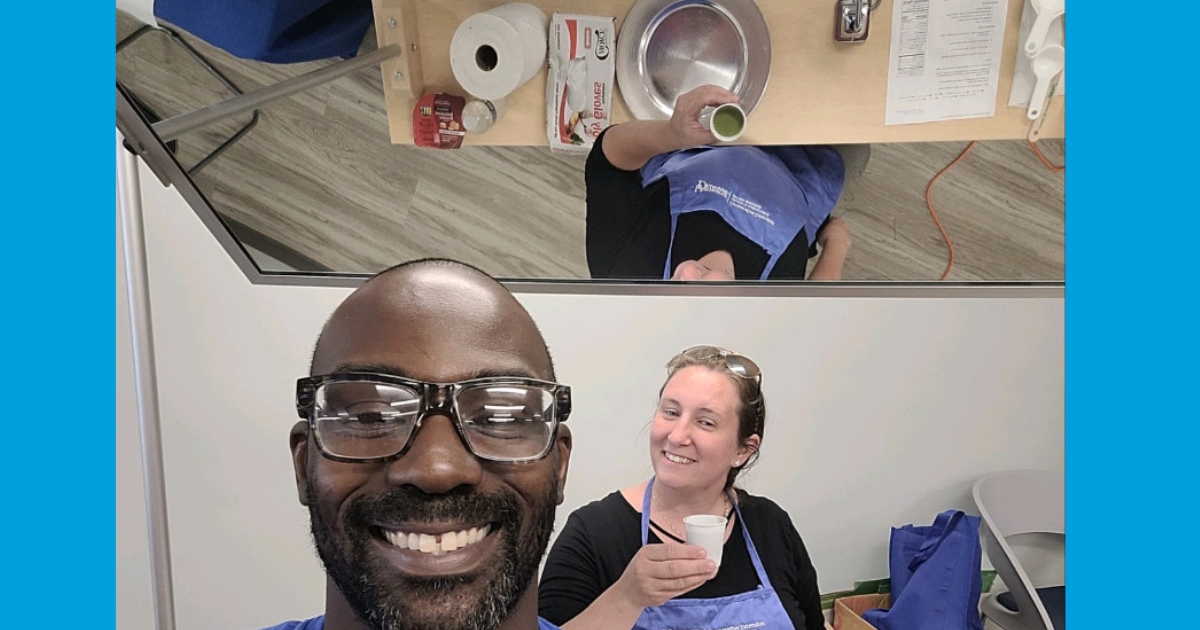
Eating Smart and Moving More Across Delaware (2024)
Eating Smart and Moving More Across Delaware (2024)
Written by: Diane Oliver, EFNEP and Food Safety Extension Agent

RELEVANCE
According to the United States Census Bureau’s Quick Facts (2023), Delaware’s poverty rate is 11.1%. KidsCount (2023) data shows 16.8% of Delaware households with children under age 18 were in poverty between 2018 and 2022. According to the Center for Budget and Policy Priorities, 120,805 Delaware residents received SNAP benefits in fiscal year 2023 — 12% of the state’s population. Between 2021 and 2023, 21% of children in Delaware were living in food-insecure households. Chronic disease is a concern both nationwide and in Delaware.
According to the Centers for Disease Control and Prevention, over one-third (about 41.9%) of adults in the United States (U.S.) are obese. Delaware has the 13th highest adult obesity rate in the nation and 29th highest youth obesity rate for ages 10 to 17, according to The State of Childhood Obesity. This data shows the need for educating people about healthy eating and using food resources wisely.
RESPONSE
The University of Delaware’s Cooperative Extension Expanded Food and Nutrition Education Program (EFNEP) provides a minimum of 6 hours of interactive, hands-on education. The program focuses on developing participants’ skills to make healthy food choices based on their budget, use their resources wisely, handle food safely, and participate in physical activity each day. The program helps to improve a family’s self-efficacy in choosing and preparing healthier foods.
RESULTS
In 2024, 295 adults participated in Eating Smart and Moving More, an EFNEP series of lessons.
Participants completed a pre-and post-lesson survey sharing what they learned and how they might behave differently in the future. One participant shared, "I would make the oatmeal pancakes for my grandkids instead of the sugary cereal." Another participant commented, “I loved eating bacon burgers, but after seeing how much fat was in them, I will not eat them anymore.”
94% (145 of 154) showed improvement in at least one diet quality indicator
44% (67 of 154) increased fruit intake
43% (64 of 149) increased vegetable intake
46% eat dark green vegetables more often each week
55% eat red and orange vegetables more often each week
89% (135 of 152) improved one or more food resource management skills, including:
-planning meals before shopping more often (44%)
-comparing prices when shopping more often (34%)
-using a grocery list (33%)
-cooking dinner at home more often (31%)
72% (108 of 151) showed improvement in one or more food safety practices
61% (92 of 150) of participants showed improvement in one or more physical activity behaviors
39% exercise for at least 30 minutes more days a week
37% made small changes to be active more often
RECOGNITION
Funding came from the USDA National Institute of Food and Agriculture.
PUBLIC VALUE STATEMENT
The Expanded Food and Nutrition Education Program improves the health and well-being of low-income adults throughout Delaware. It introduces them to nutritious foods, improves their food safety practices, increases their physical activity, and increases their overall knowledge of spending less money while food shopping.




